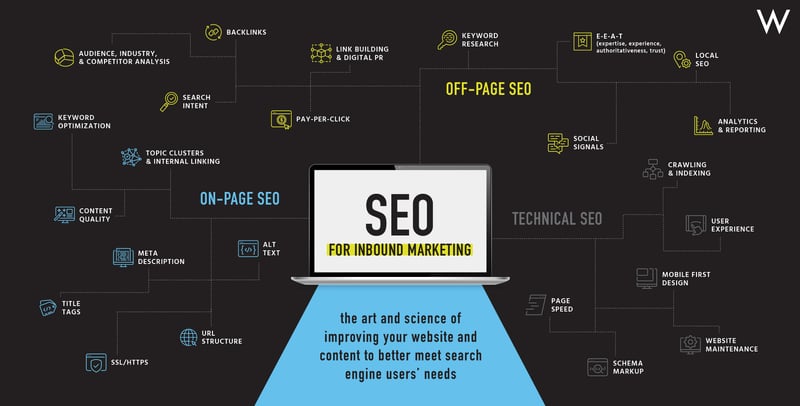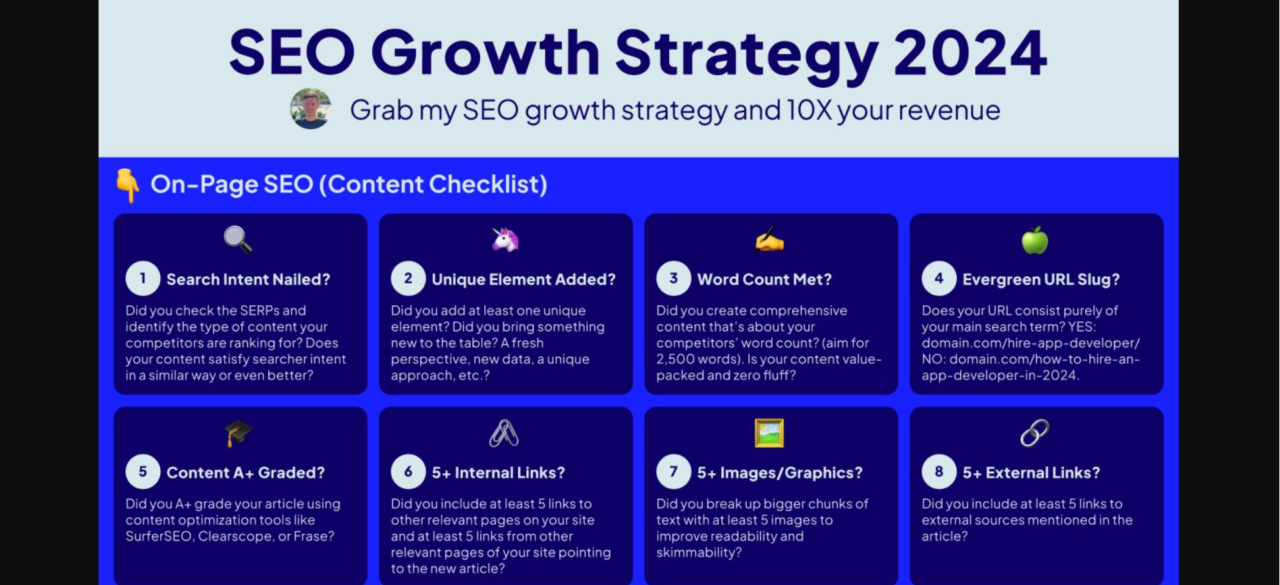Unlock the secrets of effective SEO monitoring with powerful tools and techniques to track your website’s success and boost rankings.

Image courtesy of via DALL-E 3
Table of Contents
Introduction to SEO Monitoring
SEO monitoring is a crucial practice for website owners to understand how well their websites are performing on search engines. By monitoring SEO, you can track the success of your website and make informed decisions to improve its visibility and ranking.
What is SEO?
SEO stands for Search Engine Optimization. It is the process of optimizing your website to increase its visibility on search engines like Google. When your website is optimized for search engines, it is more likely to appear on the first page of search results when users search for relevant keywords.
Why Monitor SEO?
Monitoring SEO is important because it helps you keep track of how well your website is performing in search engine results. By monitoring SEO, you can identify areas for improvement, track your progress, and make necessary adjustments to improve your website’s visibility and ranking.
Setting Goals for SEO
When it comes to improving your website’s visibility and performance on search engines, setting clear and achievable goals is crucial. By establishing specific SEO objectives and selecting the right metrics to track, you can measure your progress accurately and make informed decisions to optimize your site. Let’s delve into how you can effectively set goals for SEO.
Understanding SEO Objectives
SEO objectives are the specific goals you aim to achieve through search engine optimization efforts. These objectives can vary based on your website’s goals and target audience. Common SEO objectives include increasing website traffic, improving search engine rankings, enhancing user experience, and boosting conversions.
By defining clear SEO objectives, you can align your strategies and tactics to meet these goals effectively. For example, if your primary objective is to increase organic traffic, you may focus on optimizing your website for relevant keywords, creating high-quality content, and improving your site’s user experience.
Choosing the Right Metrics
Once you have established your SEO objectives, it’s essential to select the right metrics to measure your website’s performance accurately. Tracking the right metrics can provide valuable insights into how well your SEO strategies are working and where you may need to make adjustments.
Some common metrics to consider include keyword rankings, organic traffic, bounce rates, conversion rates, click-through rates, and page load times. By monitoring these metrics regularly, you can track your progress, identify areas for improvement, and make data-driven decisions to enhance your website’s SEO performance.
Popular SEO Monitoring Tools
Google Analytics is a powerful tool that helps website owners track and analyze their site’s performance. By using this tool, you can gain valuable insights into your website traffic, user behavior, and conversion rates. It allows you to see where your visitors are coming from, what pages they are visiting, and how long they are staying on your site.

Image courtesy of www.scalenut.com via Google Images
SEMrush
SEMrush is another popular SEO tool that offers a wide range of features for tracking and analyzing your website’s performance. With SEMrush, you can conduct in-depth keyword research, perform site audits to identify SEO issues, and even analyze your competitors’ strategies. This tool is invaluable for gaining a competitive edge in the online marketplace.
Tracking Keyword Rankings
Tracking keyword rankings is crucial for understanding how well your website is performing in search engines. There are various tools available to help you monitor your keyword rankings effectively. Tools like SEMrush, Ahrefs, Moz, and Google Search Console can provide valuable insights into where your website stands in search engine results pages (SERPs).
Interpreting SERP Data
Once you start tracking your keyword rankings, it’s essential to understand how to interpret SERP data. SERPs show the list of results that appear when a specific keyword is searched for. By analyzing SERP data, you can gain insights into what your competitors are doing, how your website compares, and identify opportunities for improvement in your keyword strategy.
Analyzing Website Traffic
When you have a website, it’s essential to understand where your visitors are coming from. There are different sources of website traffic, such as organic, direct, referral, and social media. Organic traffic is when people find your site through search engines like Google. Direct traffic comes from visitors who type your website’s URL directly into their browser. Referral traffic is from other websites linking to yours, while social media traffic comes from platforms like Facebook and Instagram.

Image courtesy of texta.ai via Google Images
Monitoring Visitor Behavior
Visitor behavior on your website can tell you a lot about how well it’s performing. Bounce rates show the percentage of visitors who leave your site after viewing only one page. A high bounce rate might indicate that your website isn’t engaging enough. Session duration measures how long visitors stay on your site, with longer durations being a positive sign. Page views tell you how many pages a visitor views during their session, giving insight into how engaging your content is.
SEO Performance Reporting
In order to track the success of your website and understand how well it is performing in search engines, it is crucial to create comprehensive SEO performance reports. By analyzing these reports, you can identify areas for improvement, track progress, and make informed decisions to enhance your SEO efforts.
Report Components
When creating an SEO performance report, there are key components that you should include to provide a comprehensive overview of your website’s performance. These components typically consist of:
- Traffic Analysis: Understanding the sources of traffic to your website, such as organic, direct, referral, and social media.
- Keyword Rankings: Monitoring the performance of your target keywords in search engine results pages (SERPs).
- Conversion Rates: Tracking the rate at which visitors to your website take desired actions, such as making a purchase or signing up for a newsletter.
Using Analytics Tools
To generate these reports effectively, it is essential to utilize analytics tools like Google Analytics and Google Search Console. These tools provide valuable data and insights that can help you understand the performance of your website, identify areas for improvement, and make data-driven decisions to optimize your SEO strategy.
Identifying and Fixing Issues
When it comes to ensuring your website performs well in search engines, conducting regular site audits is crucial. Site audits involve a thorough examination of your website to identify any technical or on-page SEO issues that may be holding you back from reaching your full potential. By conducting these audits, you can pinpoint areas of improvement and take necessary actions to enhance your website’s SEO performance.

Image courtesy of www.weidert.com via Google Images
Common SEO Problems
Common SEO problems can hinder your website’s visibility and ranking in search engine results. Some of the most frequent issues include broken links, duplicate content, and slow page speeds. Broken links can negatively impact user experience and credibility, while duplicate content can confuse search engines and result in lower rankings. Additionally, slow page speeds can lead to a poor user experience, causing visitors to leave your site quickly.
Fortunately, these issues can be fixed with the right strategies. For broken links, ensure all links on your website are working correctly by using tools like Google Search Console. To address duplicate content, rewrite unique content for each page and use canonical tags to indicate the preferred version. Improving page speed can be achieved by optimizing images, leveraging browser caching, and minimizing CSS and JavaScript files.
Tracking Competitor Strategies
Competitor analysis is a crucial aspect of SEO monitoring that can provide valuable insights into improving your website’s performance. By understanding what strategies your competitors are using, you can adapt and refine your own approach to stay ahead in search engine rankings.
Identifying Key Competitors
Start by using SEO tools to identify who your main competitors are in the online space. These tools can help you analyze websites that are ranking for similar keywords or targeting the same audience.
Analyzing Competitor Tactics
Once you’ve identified your key competitors, it’s time to dig deeper into their SEO strategies. Look at factors such as the keywords they are targeting, the quality and quantity of backlinks they have, and the content they are producing.
By studying your competitors’ tactics, you can learn what is working well in your industry and gain inspiration for your own SEO strategy. Pay attention to trends and patterns to adapt and optimize your approach accordingly.
Conclusion and Summary
SEO monitoring is crucial for understanding how well your website is performing in search engines. By using the right tools and techniques, you can track your success and make informed decisions to improve your online visibility. Throughout this article, we covered various aspects of effective SEO monitoring to help you achieve your goals.

Image courtesy of www.linkedin.com via Google Images
Key Points Recap
In the introduction, we explained what SEO is and why monitoring it is essential for your website. Setting clear goals and objectives helps you track and measure your SEO performance accurately. Choosing the right metrics, such as keyword rankings and organic traffic, is vital for evaluating success.
We introduced popular SEO monitoring tools like Google Analytics and SEMrush, highlighting their features and capabilities. Tracking keyword rankings and interpreting SERP data play a significant role in optimizing your keywords and content strategy.
Analyzing website traffic allows you to understand visitor behavior and improve user experience. Creating comprehensive SEO performance reports using analytics tools helps you monitor progress over time. Identifying and fixing common SEO issues through site audits is crucial for maintaining a healthy website.
By tracking competitor strategies and analyzing their tactics, you can gain valuable insights to enhance your SEO performance. Understanding competitor SEO strategies and incorporating best practices into your own approach can give you a competitive advantage.
Effective SEO monitoring involves continuous effort and dedication. By staying informed, implementing best practices, and adapting to changes in search engine algorithms, you can boost your website’s visibility and drive more organic traffic.
Want to turn these SEO insights into real results? Seorocket is an all-in-one AI SEO solution that uses the power of AI to analyze your competition and craft high-ranking content.
Seorocket offers a suite of powerful tools, including a Keyword Researcher to find the most profitable keywords, an AI Writer to generate unique and Google-friendly content, and an Automatic Publisher to schedule and publish your content directly to your website. Plus, you’ll get real-time performance tracking so you can see exactly what’s working and make adjustments as needed.
Stop just reading about SEO – take action with Seorocket and skyrocket your search rankings today. Sign up for a free trial and see the difference Seorocket can make for your website!
Frequently Asked Questions (FAQs)
What is SEO monitoring?
SEO monitoring involves keeping track of how well your website is performing in search engines. It helps you understand if your SEO efforts are working effectively to improve your website’s visibility and ranking on search engine result pages.
Which is the best SEO monitoring tool?
Choosing the best SEO monitoring tool depends on your specific needs and goals. Google Analytics is a popular choice for tracking website traffic and user behavior. SEMrush is another powerful tool for analyzing keywords, conducting site audits, and researching competitors. Both tools offer valuable insights to enhance your SEO strategy and improve your website’s performance.







